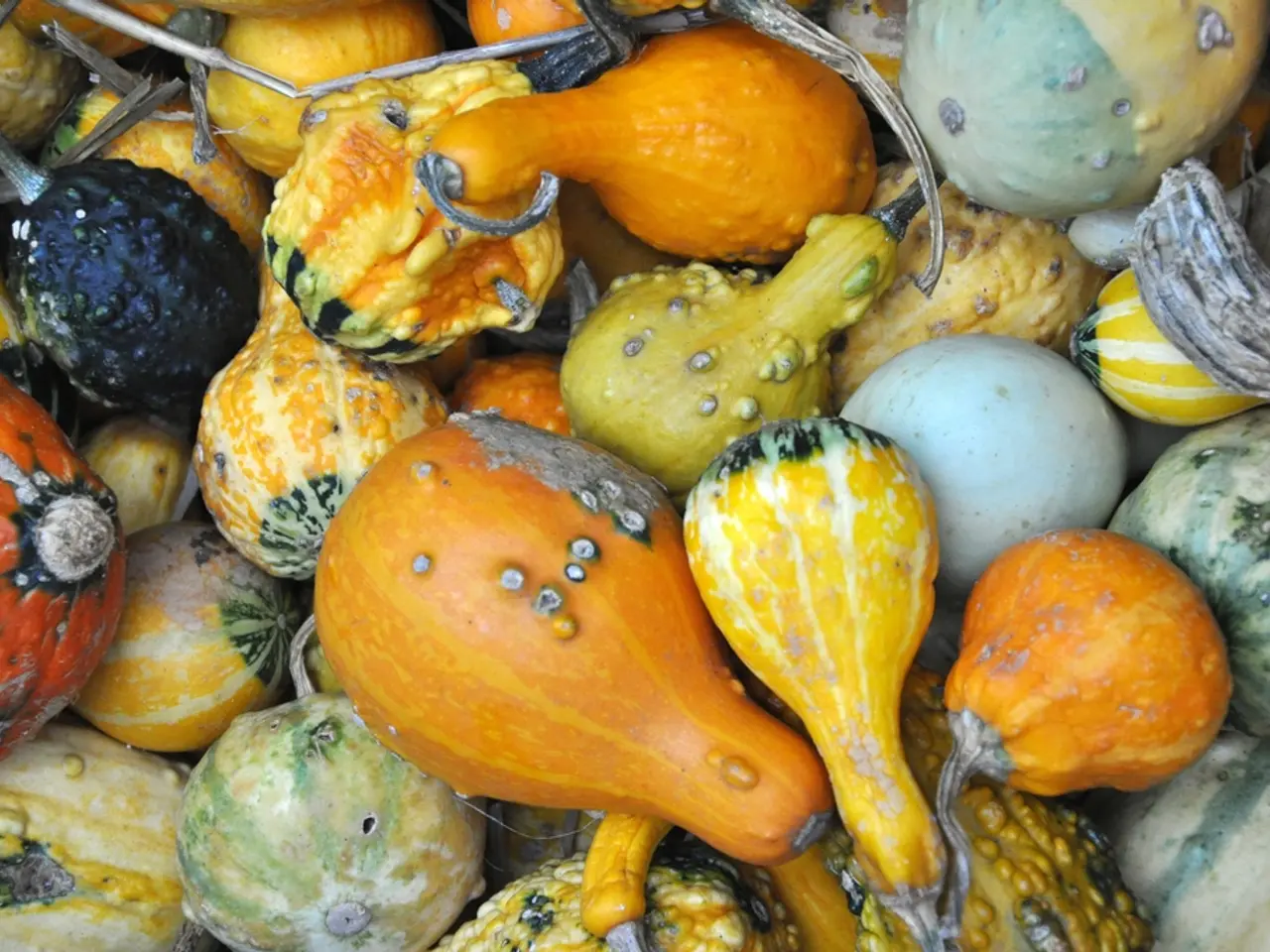Enhance your vision with these 6 eye-health fortifying produce: Vegetables and fruits for optimal eye wellness
In a world where digital screens dominate our daily lives, maintaining good vision health has never been more important. Here's a breakdown of six key foods that can help strengthen your eyes and reduce the risks of various eye diseases.
1. Fatty Fish
Rich in omega-3 fatty acids (DHA and EPA), fatty fish such as salmon, sardines, and mackerel support retina function and reduce the risks of dry eye and macular degeneration. Incorporate these into your diet 2–3 times per week, whether it's grilled salmon dinners or sardines in salads.
2. Leafy Greens
Packed with lutein, zeaxanthin, and vitamins C and E, leafy greens like spinach, kale, and collards protect eyes from damaging light and oxidative stress. Consume these daily, either in smoothies, salads, sautéed as side dishes, or mixed into omelets.
3. Orange Vegetables
High in beta-carotene (vitamin A), orange vegetables such as carrots, sweet potatoes, and pumpkin are essential for night vision and maintaining the eye’s surface health. Incorporate these vegetables 2–3 times per week as roasted sides, soups, or blended into smoothies.
4. Nuts & Seeds
Providing vitamin E, nuts and seeds like almonds and sunflower seeds fight cellular damage in the eyes. Snack on a handful daily or sprinkle over yogurt, salads, or oatmeal.
5. Citrus Fruits
Containing vitamin C and antioxidants, citrus fruits like oranges and grapefruit maintain eye collagen and reduce the risk of cataracts. Enjoy these as snacks, juices, or added to salads several times a week.
6. Whole Grains
Whole grains like brown rice, quinoa, and whole wheat breads contain vitamin E, zinc, and niacin, which support lens and retina health and may reduce age-related eye decline. Include these regularly in meals.
Additional Tips
- Adopting a Mediterranean diet pattern, which emphasizes olive oil, whole grains, veggies, fish, and nuts, supports overall eye health.
- For those at risk of age-related macular degeneration (AMD), doctors may recommend AREDS supplements containing specific vitamins and minerals based on research.
- Combining these foods in balanced meals throughout the week ensures a diverse intake of nutrients critical for maintaining vision and reducing risks of eye diseases.
A Weekly Vision-Boosting Plan
A simple weekly plan includes adding blueberries, chamomile, mulberries, fennel, goji berries, and dark chocolate (70%+ cacao) to your diet. For example:
- Breakfast: Oatmeal with walnuts and fresh citrus slices
- Lunch: Spinach kale salad with grilled sardines, seeds, and olive oil dressing
- Dinner: Baked salmon with roasted sweet potatoes and steamed kale
- Snacks: Carrot sticks, a handful of almonds, or orange segments
This approach maximizes nutrient intake shown by studies to benefit vision health.
Bonus Tips
- Maintaining proper hydration is important for eye health and preventing dry eyes.
- Fennel reduces eye inflammation and excessive tearing, contains anethole that lowers intraocular pressure in glaucoma patients, and acts as a natural eye rinse when prepared as tea.
- Mulberries contain the compound 1-deoxynojirimycin (DNJ) that helps regulate blood sugar levels, important since diabetes is a leading cause of blindness.
- Protecting eyes from UV damage with quality sunglasses is important.
- Considering natural supplements like broccophane (from broccoli), which boosts thioredoxin, a protein that protects retinal cells, can be beneficial.
- Ginkgo biloba leaves contain unique compounds that specifically target eye health and improve blood circulation to the retina.
- Following the 20-20-20 rule when using screens can help prevent eye strain.
- A balanced approach to eye health includes eating across the color spectrum, varying your sources, consuming regularly in small servings, and combining with healthy fats.
- Research indicates that incorporating certain plant foods into your diet can reduce the risk of age-related eye conditions by up to 40%.
- Goji berries have the highest concentration of zeaxanthin of any known food, crucial for filtering harmful blue light.
- Chamomile contains apigenin, a flavonoid with anti-inflammatory properties that reduce eye redness and swelling.
- Goji berries provide beta-carotene that converts to vitamin A, essential for night vision.
- Mulberries, while relatively obscure in Western diets, have been used in Traditional Chinese Medicine for centuries to enhance vision and protect eye health.
By incorporating these foods into your diet, you'll be taking a significant step towards maintaining and improving your vision health. Regular eye examinations remain essential for early detection of problems.
- In addition to eating foods beneficial for eye health, adopting a Mediterranean diet can further support overall eye wellness, as it emphasizes olive oil, whole grains, vegetables, fish, and nuts.
- For individuals at risk of age-related macular degeneration, doctors may recommend AREDS supplements, containing specific vitamins and minerals from research, in conjunction with a balanced diet.
- To ensure a diverse intake of critical nutrients for maintaining vision and reducing risks of eye diseases, it's beneficial to combine these eye health-boosting foods in balanced meals throughout the week.
- Maintaining hydration is important for eye health, and certain foods like fennel can be helpful in reducing eye inflammation, excess tearing, and serving as a natural eye rinse when prepared as tea.




